
Griffintown: The Heartbeat of Montreal's Industrial Past and Creative Present
Nestled along the southwestern edge of downtown Montreal, Griffintown stands as a testament to the city's rich industrial heritage while embracing a vibrant, modern spirit. Once the bustling heart of Montreal's industrial sector, this neighbourhood has transformed into a trendy hotspot, blending historic charm with contemporary flair. Strolling through Griffintown, you'll encounter a harmonious mix of old and new. The area is dotted with restored warehouses and factories, now home to chic lofts, art galleries, and innovative eateries. The Lachine Canal, a serene waterway that once powered the factories, now serves as a scenic backdrop for leisurely walks, cycling, and kayaking. The canal's green spaces are perfect for picnics and offer breathtaking views of the city skyline. Griffintown is also a cultural hub, hosting numerous art festivals, markets, and events throughout the year. The neighbourhood's thriving dining scene features everything from gourmet bistros to cozy cafes, ensuring that every palate is satisfied. With its rich history, dynamic arts scene, and picturesque setting, Griffintown provides an unforgettable experience for visitors looking to explore the multifaceted essence of Montreal.
Local tips in Griffintown
- Visit the Lachine Canal for a relaxing walk or bike ride; rentals are available nearby.
- Check out the seasonal markets and art festivals to experience local culture.
- Explore the area's diverse dining options, from gourmet restaurants to casual cafes.
- Take a guided walking tour to learn about Griffintown's industrial history and architectural landmarks.
- Don't miss the chance to visit local art galleries showcasing contemporary works by Montreal artists.
Griffintown: The Heartbeat of Montreal's Industrial Past and Creative Present
Nestled along the southwestern edge of downtown Montreal, Griffintown stands as a testament to the city's rich industrial heritage while embracing a vibrant, modern spirit. Once the bustling heart of Montreal's industrial sector, this neighbourhood has transformed into a trendy hotspot, blending historic charm with contemporary flair. Strolling through Griffintown, you'll encounter a harmonious mix of old and new. The area is dotted with restored warehouses and factories, now home to chic lofts, art galleries, and innovative eateries. The Lachine Canal, a serene waterway that once powered the factories, now serves as a scenic backdrop for leisurely walks, cycling, and kayaking. The canal's green spaces are perfect for picnics and offer breathtaking views of the city skyline. Griffintown is also a cultural hub, hosting numerous art festivals, markets, and events throughout the year. The neighbourhood's thriving dining scene features everything from gourmet bistros to cozy cafes, ensuring that every palate is satisfied. With its rich history, dynamic arts scene, and picturesque setting, Griffintown provides an unforgettable experience for visitors looking to explore the multifaceted essence of Montreal.
Iconic landmarks you can’t miss
Des Bassins Place | Lachine Canal National Historic Site
Discover Montreal's Lachine Canal: History, recreation, and scenic beauty converge at Des Bassins Place, a perfect urban escape.
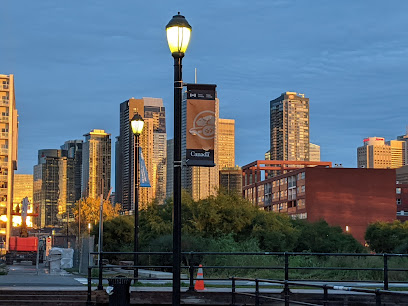
L'Hotel Particulier Griffintown
Experience the charm of Montreal at L'Hotel Particulier Griffintown, a cozy bed & breakfast in the heart of the vibrant Griffintown neighborhood.
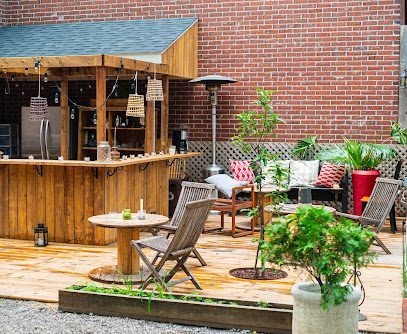
Bonaventure Park entrance
Discover the serene beauty of Bonaventure Park in Montreal, where art meets nature for a tranquil escape in the heart of the city.
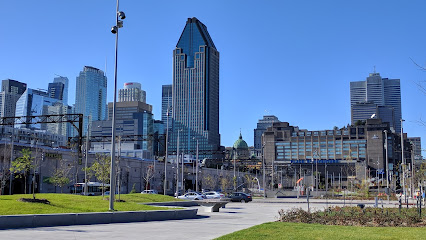
Lachine Canal - Saint-Gabriel Lock
Explore Montreal's historic Lachine Canal at the Saint-Gabriel Lock, where scenic pathways meet 19th-century engineering.
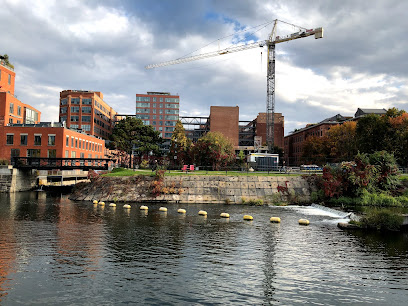
Tour Wellington
Immerse yourself in the history of Montreal at Tour Wellington, a remarkable landmark showcasing the city's industrial heritage and stunning architecture.
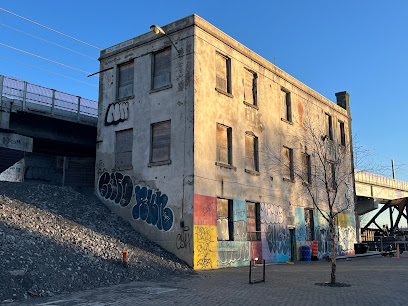
CNR Wellington Bridge
Discover the CNR Wellington Bridge, a historical gem in Montreal, showcasing architectural brilliance and offering stunning city views.
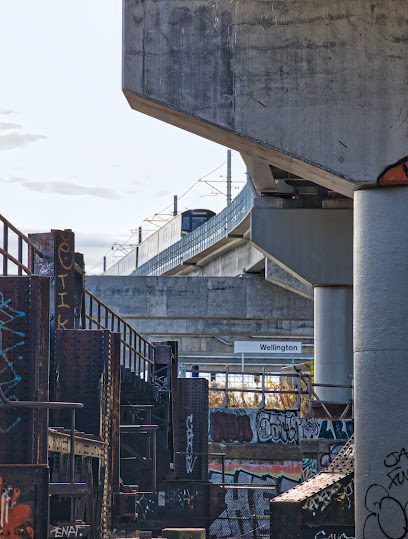
Keegan House
Discover the historical charm of Keegan House in Montreal, a stunning landmark showcasing the city's architectural beauty and rich cultural heritage.
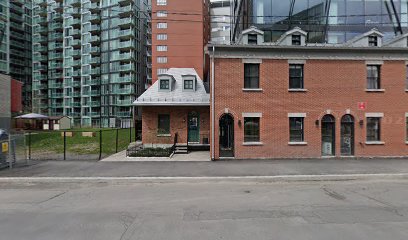
Montreal old architecture place
Explore Montreal's captivating old architecture, where history meets vibrant culture in a stunning urban landscape filled with charm and character.
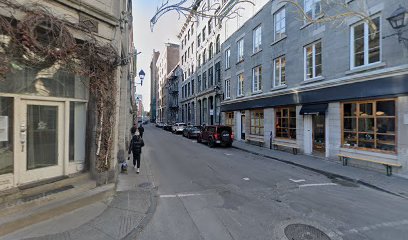
Place des Arrimeurs
Experience tranquility at Place des Arrimeurs, a serene park in Montreal perfect for relaxation, nature walks, and family picnics amidst urban charm.
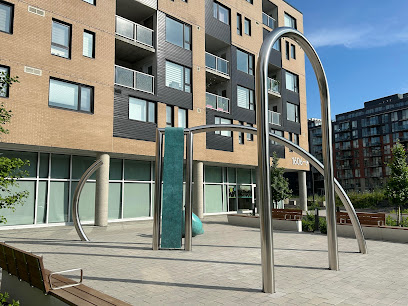
Ruines de l'église Sainte-Anne
Explore the captivating Ruines de l'église Sainte-Anne, a historical landmark in Montreal's Griffintown that tells a story of resilience and architectural beauty.
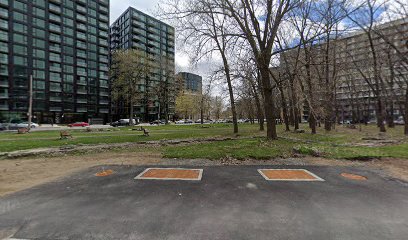
Place des Aiguilleurs
Escape to Place des Aiguilleurs, a peaceful park in Montreal's Griffintown, perfect for families, relaxation, and enjoying temporary art.
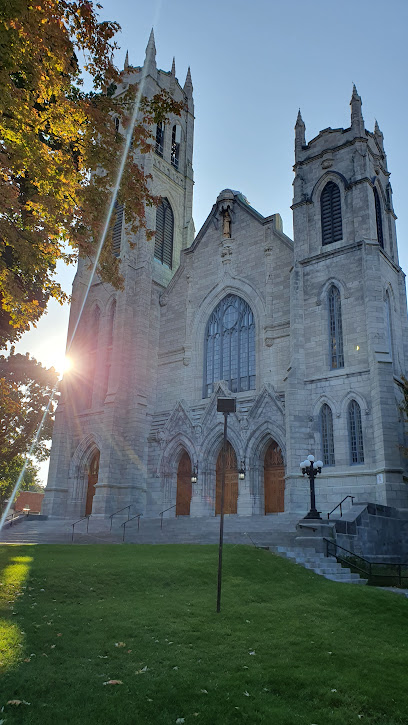
Unmissable attractions to see
Mount Royal Park
Discover the tranquil beauty and recreational charm of Mount Royal Park, Montreal's urban green oasis with breathtaking views and diverse activities.
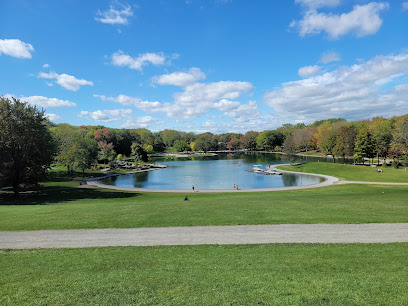
La Ronde
Discover La Ronde, Montreal's exhilarating amusement park featuring thrilling rides, captivating shows, and fun for all ages in a scenic setting.
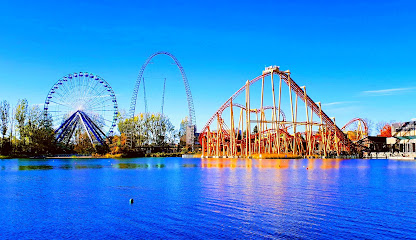
La Grande Roue de Montréal
Discover stunning views of Montreal from La Grande Roue, the tallest observation wheel in Canada, blending culture and breathtaking experiences.
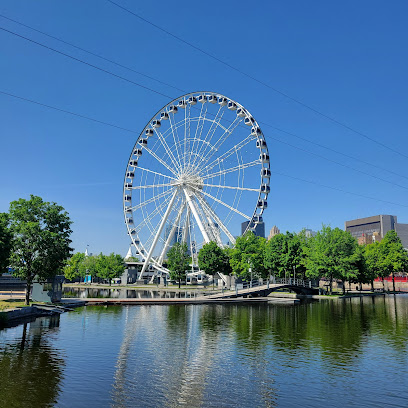
Barbie Expo
Explore the enchanting world of Barbie at the Barbie Expo in Montreal, where fashion, art, and nostalgia come together to create a unique experience.
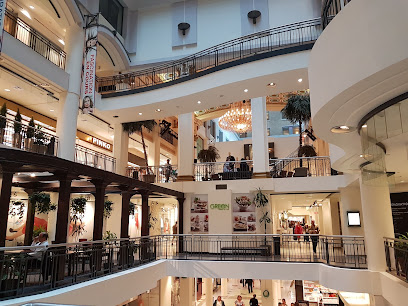
Notre-Dame-de-Bon-Secours Chapel
Experience the blend of history and spirituality at Notre-Dame-de-Bon-Secours Chapel, a cultural treasure in Montreal's heart.
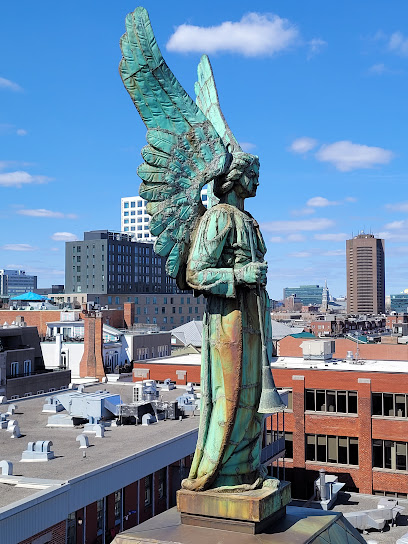
Des Bassins Place | Lachine Canal National Historic Site
Explore Des Bassins Place, a charming park and historical landmark along the Lachine Canal, perfect for relaxation and cultural immersion in Montreal.
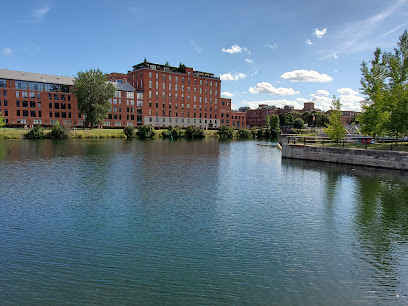
Jean-Paul-Riopelle Place
Experience the art and tranquility of Jean-Paul-Riopelle Place, a beautiful urban park in the heart of Montreal, rich in culture and creativity.
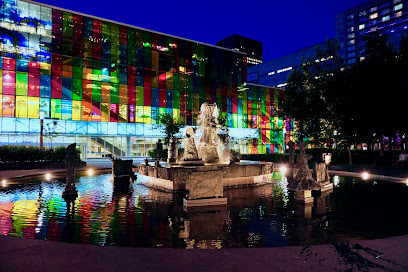
The Ring
Discover the architectural marvel of The Ring at Place Ville Marie, a vibrant hub of culture and stunning views in the heart of Montreal.
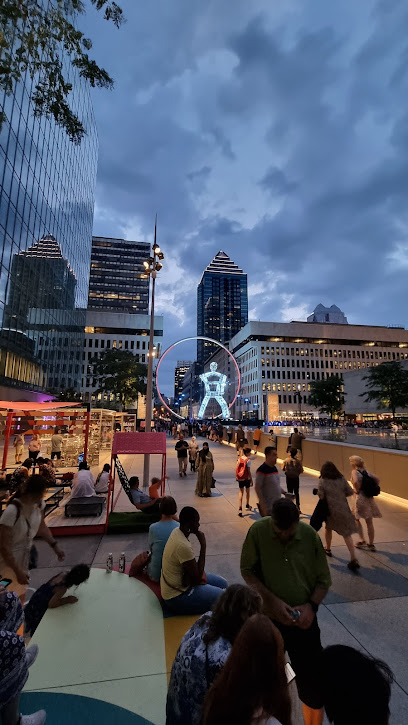
Le Vieux Montréal
Experience the historical elegance of Le Vieux Montréal, where cobblestone streets and stunning architecture create an unforgettable atmosphere.
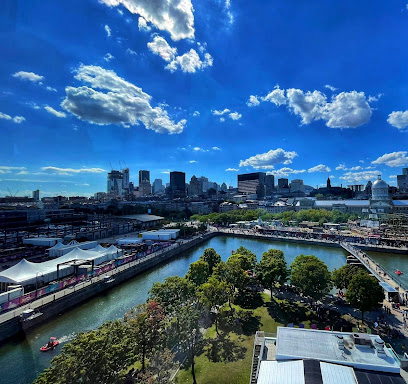
Essential places to dine
Restaurant Grinder
Experience Montreal's culinary scene at Restaurant Grinder - where fresh seafood meets sophisticated dining in an inviting atmosphere.
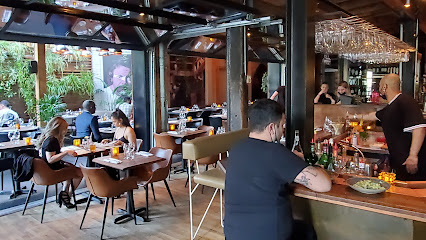
Mano Cornuto
Discover Mano Cornuto: An exquisite Italian restaurant and cocktail bar in Montreal offering delicious cuisine and an inviting atmosphere.
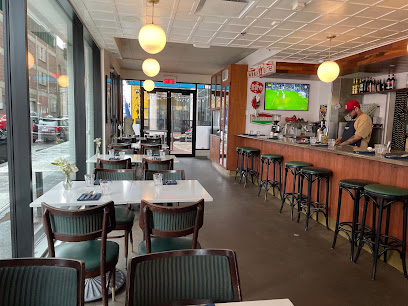
SHAY
Savor authentic Middle Eastern cuisine in a vibrant setting at SHAY in Montreal - a culinary gem for every food lover.
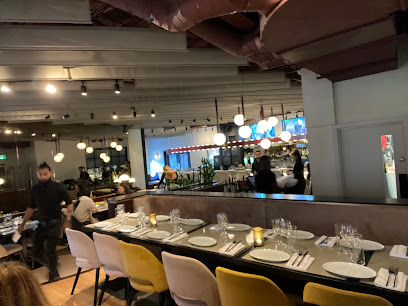
Restaurant ZIBO! Griffintown
Discover the culinary delights of Montreal at Restaurant ZIBO! Griffintown - where local flavors meet modern dining.
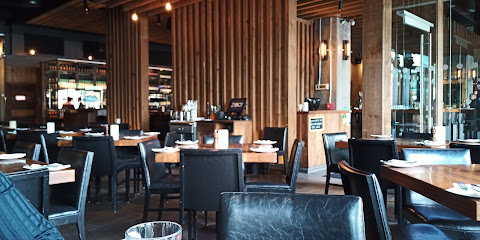
Le Richmond
Experience authentic Italian cuisine at Le Richmond in Montreal – where tradition meets innovation in every delicious dish.
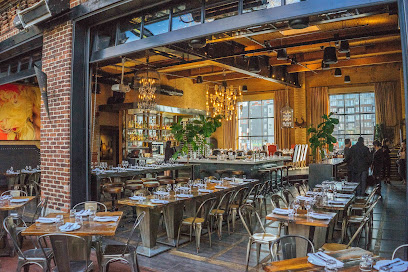
Perles et Paddock
Experience the culinary artistry of Perles et Paddock in Montreal – where every dish tells a story of flavor and creativity.
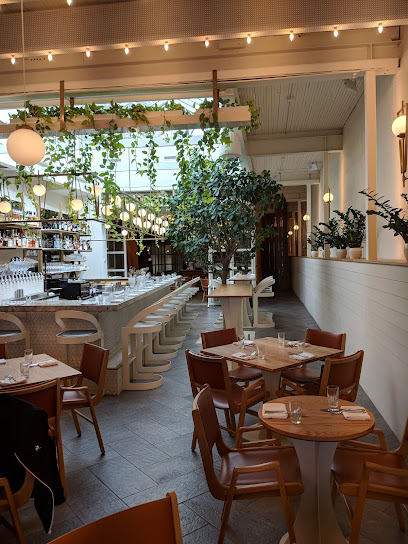
Foxy
Discover Foxy in Montreal - where culinary creativity meets warm hospitality and exquisite flavors await.
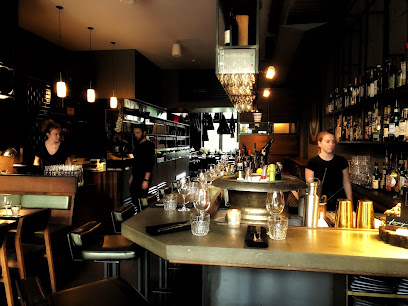
maman
Discover Maman in Montreal: A charming brunch spot offering artisanal baked goods and delectable breakfast dishes in a cozy atmosphere.
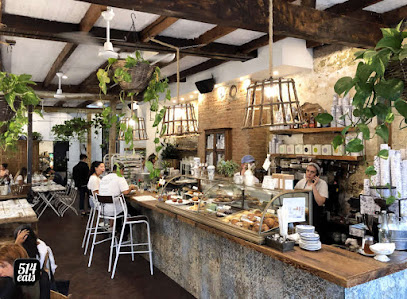
Küto - Comptoir à Tartares Griffintown
Experience Montreal's vibrant culinary scene at Küto - Comptoir à Tartares in Griffintown, where exquisite tartares meet innovative flavors.
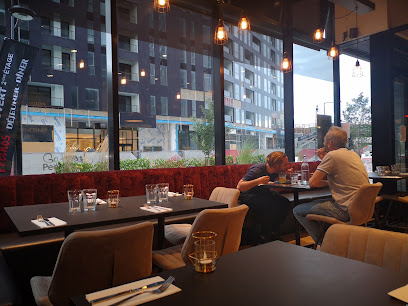
Gourmet Griffintown
Discover gourmet dining at Gourmet Griffintown - where local ingredients meet international flair in a stylish Montreal setting.
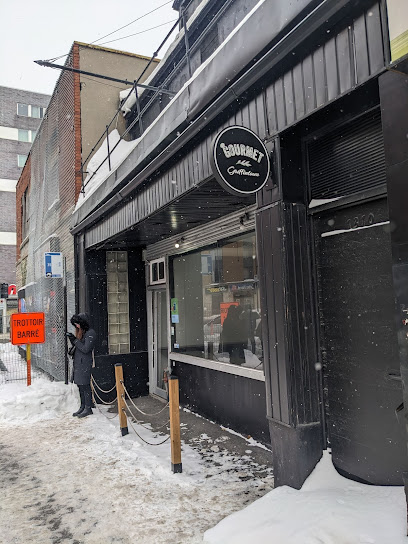
Markets, malls and hidden boutiques
Winners
Discover unbeatable fashion and home deals at Winners, Montreal's premier department store for savvy shoppers seeking quality and savings.
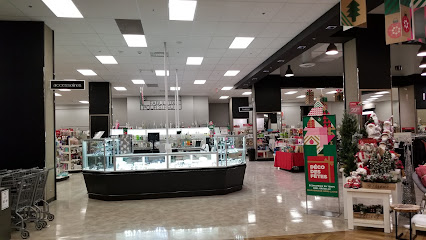
ARTÉ - Artisan Renewal and Ecological Transformation
Explore Montreal's ARTÉ for a unique thrift store experience, featuring vintage treasures and a commitment to sustainable shopping.
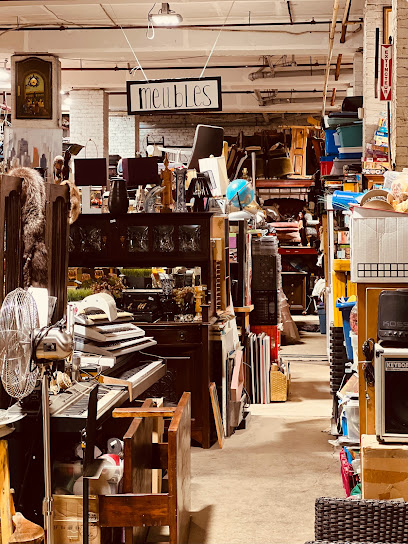
KURIOSITY
Explore KURIOSITY in Montreal: A treasure trove of unique gifts and local artistry awaits you in this charming shop!
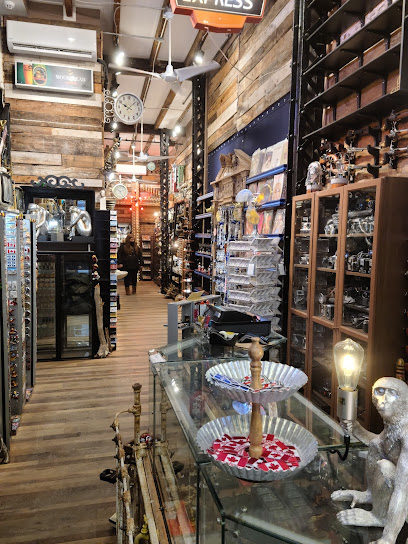
Dépanneur Griffintown
Discover the charm of Dépanneur Griffintown, a local convenience store offering a delightful selection of snacks, drinks, and local products in Montreal's trendy neighborhood.
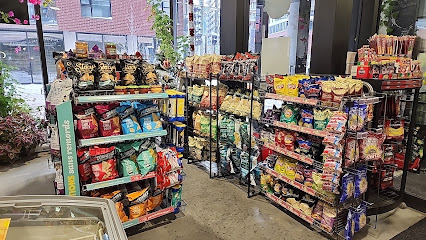
Deuxiemement
Explore Deuxiemement in Montreal for exquisite antiques and vintage furniture, a must-visit for decor enthusiasts and treasure hunters alike.
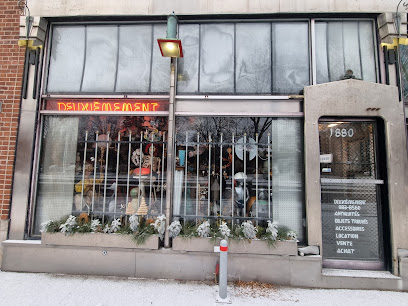
fairshop.ca
Explore Fairshop.ca in Montreal for unique gifts and local artistry that capture the essence of your travels.
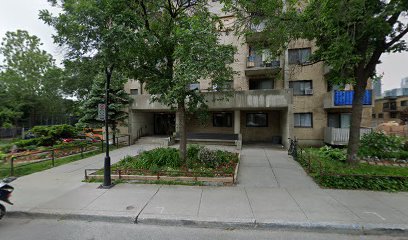
sadbutjacked
Explore Montreal's trendiest clothing store, SadButJacked, where style meets individuality and quality apparel awaits.
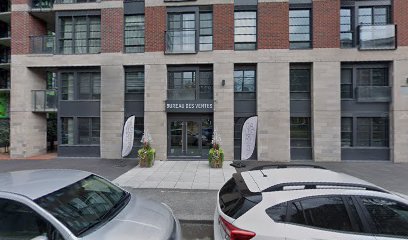
NNAD Quebec
Explore NNAD Quebec, Montreal's trendy youth clothing store featuring unique fashion pieces that celebrate individuality and urban style.
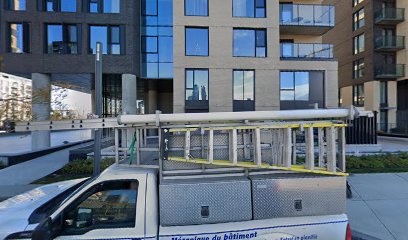
Designini.mtl
Explore the chic and unique fashion finds at Designini.mtl, Montreal's premier destination for stylish accessories that elevate your wardrobe.
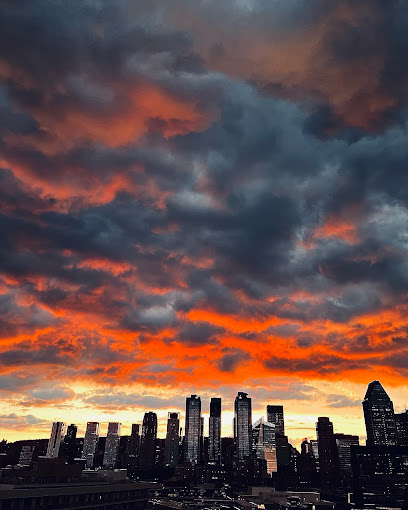
BN Store
Discover the latest fashion trends and local styles at BN Store, a must-visit clothing store in Montreal's vibrant Southwest borough.
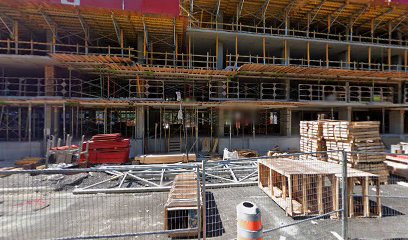
Essential bars & hidden hideouts
Lord William Pub
Experience the vibrant atmosphere of Lord William Pub in Griffintown, Montreal, where local craft beer and hearty dishes meet a lively social scene.
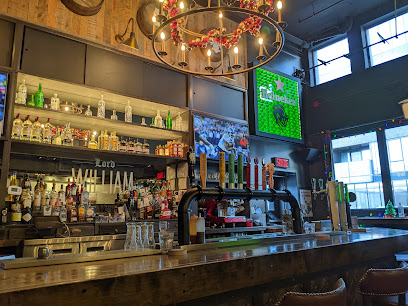
Bird Bar
Discover the vibrant Bird Bar in Montreal, a perfect blend of delicious cuisine, craft cocktails, and lively ambiance for an unforgettable dining experience.
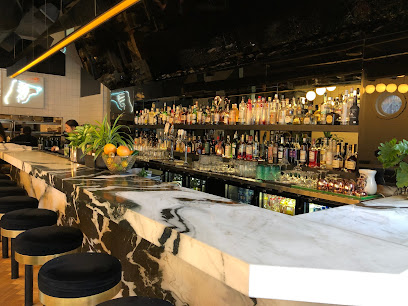
DRINKERIE STE-CUNÉGONDE
Discover the perfect blend of cocktails, wines, and delicious bites at Drinkerie Ste-Cunégonde, a vibrant bar in Montreal's Southwest borough.
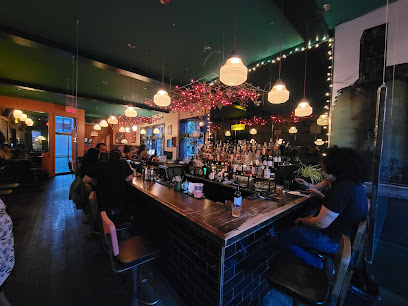
Perles et Paddock
Experience the vibrant flavors of Montreal at Perles et Paddock, a stylish bar and restaurant known for its unique cocktails and exquisite dishes.
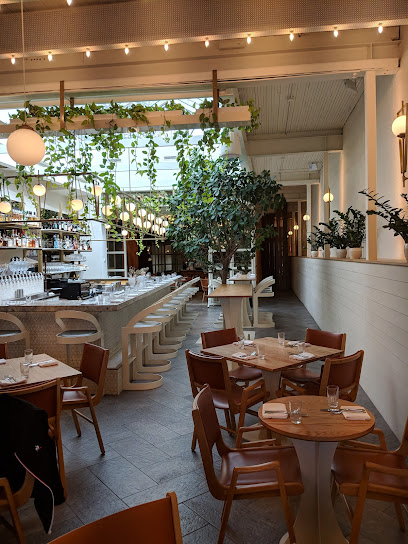
Le Bureau Bar Tapas
Experience the pulse of Montreal at Le Bureau Bar Tapas, where delightful tapas meet a vibrant bar atmosphere.
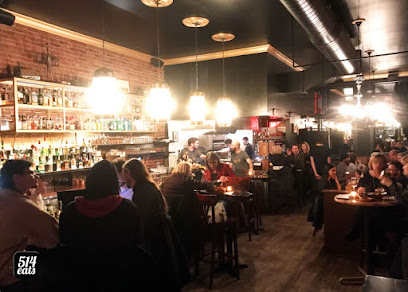
Bazart
Experience the vibrant atmosphere, creative cocktails, and delicious cuisine at Bazart, a unique bar and restaurant in Montreal's Southwest borough.
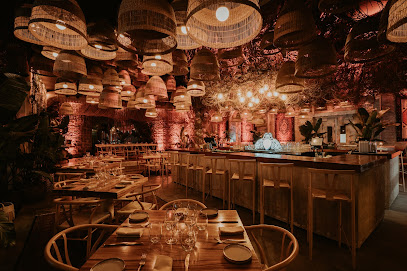
King Crab
Experience the freshest crab and vibrant nightlife at King Crab, a premier seafood bar in the heart of Montreal.
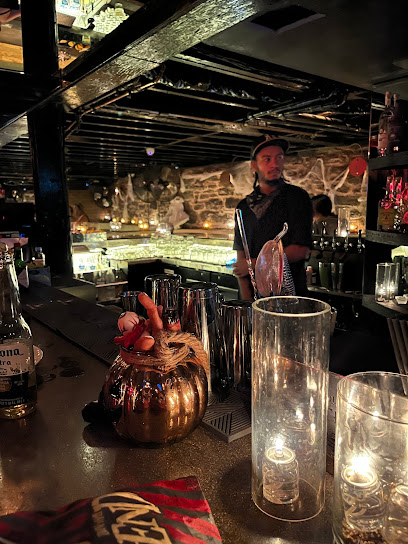
Vendetta Bar à Vin
Experience the essence of Montreal's wine culture at Vendetta Bar à Vin, where exceptional wines meet a warm, inviting atmosphere.
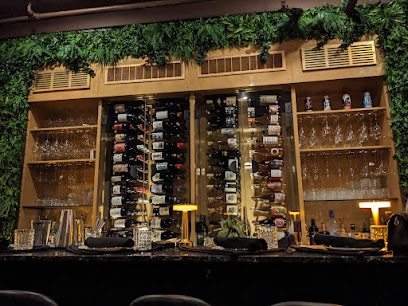
Henden
Discover the lively atmosphere and unique cocktails at Henden, a must-visit bar in the heart of Montreal's vibrant nightlife.
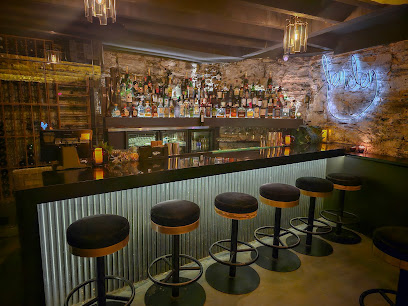
Le 658
Discover the lively charm and innovative cocktails at Le 658, a must-visit bar in the heart of Montreal's nightlife.
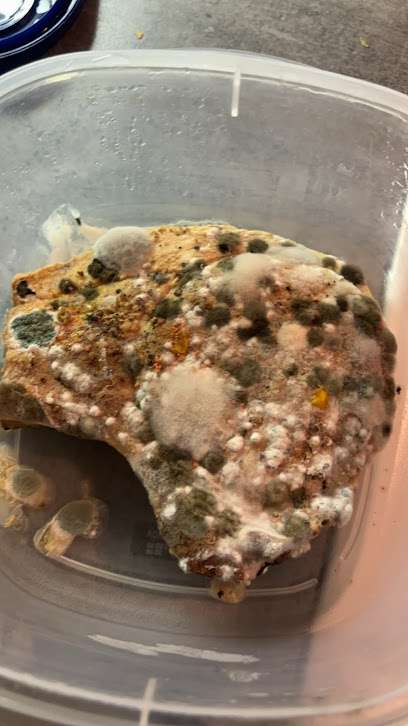
Local Phrases
-
- HelloBonjour
[bon-zhoor] - GoodbyeAu revoir
[oh reh-vwar] - YesOui
[wee] - NoNon
[nohn] - Please/You're welcomeS'il vous plaît/De rien
[seel voo pleh/duh ree-ehn] - Thank youMerci
[mehr-see] - Excuse me/SorryExcusez-moi/Désolé
[ehk-skew-zay mwah/deh-zoh-leh] - How are you?Comment ça va?
[koh-mohn sah vah] - Fine. And you?Bien. Et vous?
[byen. ay voo] - Do you speak English?Parlez-vous anglais?
[pahr-lay voo ahn-glay] - I don't understandJe ne comprends pas
[zhuh nuh kohm-prahnd pah]
- HelloBonjour
-
- I'd like to see the menu, pleaseJe voudrais voir le menu, s'il vous plaît
[zhuh voo-dray vwahr luh muh-noo, seel voo pleh] - I don't eat meatJe ne mange pas de viande
[zhuh nuh mahnj pah duh vyand] - Cheers!Santé!
[sahn-tay] - I would like to pay, pleaseJe voudrais payer, s'il vous plaît
[zhuh voo-dray pay-ay, seel voo pleh]
- I'd like to see the menu, pleaseJe voudrais voir le menu, s'il vous plaît
-
- Help!À l'aide!
[ah lehd] - Go away!Allez-vous en!
[ah-lay vooz ahn] - Call the Police!Appelez la police!
[ah-puh-lay lah poh-leece] - Call a doctor!Appelez un médecin!
[ah-puh-lay uh may-duh-san] - I'm lostJe suis perdu
[zhuh swee pair-doo] - I'm illJe suis malade
[zhuh swee mah-lahd]
- Help!À l'aide!
-
- I'd like to buy...Je voudrais acheter...
[zhuh voo-dray ash-tay...] - I'm just lookingJe regarde juste
[zhuh ruh-gard zhew-stuh] - How much is it?Combien ça coûte?
[kohm-byen sah koot] - That's too expensiveC'est trop cher
[say troh shair] - Can you lower the price?Pouvez-vous baisser le prix?
[poo-vay voo beh-say luh pree]
- I'd like to buy...Je voudrais acheter...
-
- What time is it?Quelle heure est-il?
[kell ur ay-teel] - It's one o'clockIl est une heure
[eel ay oon ur] - Half past (10)Dix heures et demie
[dees ur ay duh-mee] - MorningMatin
[mah-tahn] - AfternoonAprès-midi
[ah-pray mee-dee] - EveningSoir
[swahr] - YesterdayHier
[yehr] - TodayAujourd'hui
[oh-zhoor-dwee] - TomorrowDemain
[duh-mahn] - 1Un
[uhn] - 2Deux
[duh] - 3Trois
[twah] - 4Quatre
[kah-truh] - 5Cinq
[sank] - 6Six
[sees] - 7Sept
[sept] - 8Huit
[wheat] - 9Neuf
[nurf] - 10Dix
[dees]
- What time is it?Quelle heure est-il?
-
- Where's a/the...?Où est...?
[oo ay...] - What's the address?Quelle est l'adresse?
[kell ay lah-dress] - Can you show me (on the map)?Pouvez-vous me montrer (sur la carte)?
[poo-vay voo muh mohn-tray (soor lah kart)] - When's the next (bus)?Quand est le prochain (bus)?
[kahnd ay luh proh-shang (boos)] - A ticket (to ....)Un billet (pour ....)
[uhn bee-yay (poor)]
- Where's a/the...?Où est...?
History of Griffintown
-
Griffintown's history began in the early 19th century as an industrial hub, primarily populated by Irish immigrants. These workers played a significant role in the construction of the Lachine Canal, which opened in 1825, facilitating trade and transport. The neighborhood became a vibrant center for labor and industry, with numerous factories and warehouses emerging to support the booming economy.
-
By the late 19th century, Griffintown was renowned for its breweries, including the famous Dow Brewery founded in 1820. The area's proximity to the canal allowed for efficient distribution of beer, making it a critical player in Montreal's brewing industry. This era saw the establishment of a strong community identity linked to the beer trade, which thrived until the mid-20th century.
-
The mid-20th century marked a decline for Griffintown as industries moved out of the area and many residents left for the suburbs. By the 1970s, the neighborhood faced significant neglect and decay. However, the late 1990s and early 2000s brought urban renewal efforts, transforming Griffintown into a trendy area known for its art galleries, restaurants, and residential developments.
-
In recent years, Griffintown has experienced a cultural renaissance, with a focus on preserving its historical architecture while accommodating modern developments. The influx of young professionals and artists has led to a gentrification process, reshaping the neighborhood's demographics and cultural landscape. This transformation has sparked discussions about heritage preservation and the balance between old and new in Montreal.
-
Today, Griffintown is a vibrant neighborhood that reflects Montreal's diverse culture and history. The area hosts various cultural events, including art festivals and markets, which celebrate both its industrial past and contemporary creativity. The juxtaposition of historic buildings alongside modern architecture illustrates the neighborhood's evolution, making it a unique destination for both locals and tourists.
Griffintown Essentials
-
Griffintown is easily accessible from various parts of Montreal. If you're coming from downtown, you can take the Metro (Orange Line) to Bonaventure Station and then walk approximately 10 minutes to Griffintown. Alternatively, buses 61 and 107 connect from the Atwater Metro Station. For those arriving from the airport, the 747 Express Bus can take you to downtown Montreal, where you can transfer to the Metro or a local bus.
-
Griffintown is a walkable neighbourhood, with many attractions within easy reach. Public transport options include the STM buses and Metro, which are efficient for longer distances. Biking is popular, and several bike-sharing services, like BIXI, are available. Additionally, ride-sharing services and taxis are convenient for late-night outings or when traveling with luggage.
-
Griffintown is generally a safe area for tourists. However, standard precautions should be taken. Avoid walking alone late at night in isolated spots, especially near the Lachine Canal. While the area has seen revitalization, some parts can feel deserted after dark. Keep your belongings secure and be cautious in crowded places.
-
In case of an emergency, dial 911 for police, fire, or medical assistance. For non-urgent issues, you can contact local police at (514) 393-1133. Familiarize yourself with nearby hospitals, such as the McGill University Health Centre. Always have travel insurance that covers emergencies while abroad.
-
Fashion: Do wear comfortable shoes for walking; the area is best explored on foot. Don’t wear overly flashy jewelry that might attract unwanted attention. Religion: Do respect local customs if visiting churches; women should cover shoulders. Public Transport: Do give up your seat for elderly passengers; don’t use your phone loudly. Greetings: Do greet with a friendly 'Bonjour'; don’t assume everyone speaks English. Eating & Drinking: Do try local cafes and breweries; don’t bring outside food or drink into restaurants.
-
To experience Griffintown like a local, visit the Atwater Market for fresh produce and artisanal goods. Enjoy a stroll along the Lachine Canal, which is perfect for biking and walking. Check out local art galleries and pop-up shops for unique finds. Engage with locals at neighbourhood events or festivals, and don’t hesitate to ask for recommendations on hidden gems.
Trending Landmarks in Griffintown
-
Des Bassins Place | Lachine Canal National Historic Site
-
L'Hotel Particulier Griffintown
-
Bonaventure Park entrance
-
Lachine Canal - Saint-Gabriel Lock
-
Tour Wellington
-
CNR Wellington Bridge
-
Keegan House
-
Montreal old architecture place
-
Place des Arrimeurs
-
Ruines de l'église Sainte-Anne
-
Place des Aiguilleurs
Nearby Cities to Griffintown
-
Things To Do in Burlington
-
Things To Do in Stowe
-
Things To Do in Lake Placid
-
Things To Do in Montpelier
-
Things To Do in Halifax
-
Things To Do in Middlebury
-
Things To Do in Ottawa
-
Things To Do in Killington
-
Things To Do in Rutland
-
Things To Do in Hanover
-
Things To Do in Woodstock
-
Things To Do in Quebec City
-
Things To Do in Saratoga Springs
-
Things To Do in Laconia
-
Things To Do in Bennington











